LIGHTING MANUFACTURING WITH CHRIS HARTSWICK | E001 PODCAST
LISTEN TO THIS EPISODE ON ALL STREAMING SERVICES
ABOUT THE GUEST
Chris Hartswick sits down with George Stroumboulis to discuss the business of Lighting Manufacturing.
Chris Hartswick is the CPO and Co-Founder of Ideoli Group, Inc. – a custom lighting products manufacturer with a global client base.
From his days studying architecture as an undergraduate at Rensselaer Polytechnic Institute (RPI) in New York, Chris began appreciating how light interacts with architecture and transforms spaces. He went on to receive his Master’s in Lighting from RPI.
Chris was the VP of Design and Development at Solais Lighting – an LED lighting startup, working directly under one of the most revered experts in the lighting world. He was one of the founding members and helped take the company to acquisition.
Chris now runs an international manufacturing company with his business partner, creating the most intricate lighting products for clients across multiple industries and in over 30 countries around the world. Being able to work with global brands (Tesla, WeWork, Microsoft, Aston Martin, Industrious, Convene and Hilton to name a few) has pushed his company to set up multiple offices in New York, Los Angeles, Toronto, Athens, Buenos Aires, Shanghai and Ho Chi Minh City.
WEBSITE: https://www.ideoli.com
LINKEDIN: https://www.linkedin.com/in/hartswick/
“Starting your own company, there’s this huge excitement. Short term it is going to be great and it is exciting. But ultimately the fear is it not becoming just a job. When is my next paycheck? I wanted it to be something I was always excited about. ”
MEDIA RELATED TO THE EPISODE
George and Chris have built an international business based on trust, openness and a mutual respect.
Chris Hartswick is an industry leader and expert in the design and manufacturing of lighting products.
Chris tells his story of a fake MySpace account his friends made of him as a joke, that later haunted his job-search efforts.
ABOUT THE “INVIGORATE YOUR BUSINESS” PODCAST
The Invigorate Your Business with George Stroumboulis podcast features casual conversations and personal interviews with business leaders in their respective fields of expertise. Crossing several industry types and personal backgrounds, George sits down with inspiring people to discuss their business, how they got into that business, their path to the top of their game and the trials and tribulations experienced along the way. We want you to get inspired, motivated, and then apply any advice to your personal and professional lives. If there is at least one piece of advice that resonates with you after listening, then this podcast is a success. New episodes weekly. Stream our show on Spotify, YouTube, Apple, Amazon and all other platforms.
ABOUT GEORGE STROUMBOULIS
George Stroumboulis is an entrepreneur to the core, having launched several ventures across multiple industries and international markets. He has held senior-level positions at progressive companies and government institutions, both domestically and internationally, building an extensive portfolio of business know-how over the years and driving profit-generating results. George’s ability to drive real change has landed him in several media outlets, including the front page of the Wall Street Journal. George was born in Toronto, Canada to his Greek immigrant parents. Family first. Flying over 300,000 miles a year around the world puts into perspective how important family is to George’s mental and emotional development. With all this travel to global destinations, the longest he stays even in the most far-out destination is 3 days or less - a personal rule he lives by to make sure he is present and involved in family life with his wife and three daughters. To read about George’s global travels, stay connected with his blog section.
STAY CONNECTED WITH GEORGE STROUMBOULIS
STREAM & LISTEN TO THE PODCAST:
SPOTIFY: https://open.spotify.com/show/1rW2CmxQoiJNEPOZupJlvd
YOUTUBE: https://www.youtube.com/user/Stroumboulis
APPLE iTUNES: https://podcasts.apple.com/us/podcast/invigorate-your-business-with-george-stroumboulis/id1607693240
AMAZON MUSIC: https://music.amazon.com/podcasts/8fc03929-71b3-483a-a64e-153e30b3d462/invigorate-your-business-with-george-stroumboulis
iHEARTRADIO: https://www.iheart.com/podcast/269-invigorate-your-business-w-92187370/
STROUMBOULIS SITE: https://www.stroumboulis.com/podcast
PODCAST SITE: http://www.invigorateyourbusiness.com
OTHER SERVICES: GOOGLE, PANDORA, OVERCAST, CASTRO, CASTBOX, PODFRIEND, PLAYER.FM, PODCASTADDICT, PODCHASER, PODCASTINDEX and RSS FEED.
FOLLOW GEORGE STROUMBOULIS:
INSTAGRAM: https://www.instagram.com/georgestroumboulis/
YOUTUBE: https://www.youtube.com/user/Stroumboulis
LINKEDIN: https://www.linkedin.com/in/Stroumboulis/
TWITTER: https://twitter.com/Stroumboulis
FACEBOOK: https://www.facebook.com/georgestroumboulis
TIKTOK: https://www.tiktok.com/@georgestroumboulis
CONTACT GEORGE DIRECTLY: https://www.stroumboulis.com/connect
FULL SHOW TRANSCRIPT
George Stroumboulis: So we're going to start this off. We're going to jump into this. It's a podcast. It's a buzzword. Don't really like it but it's about talking with business leaders people who are experts in their own field and Chris is definitely an expert in his field and he's also my business partner and we also started a pretty kick-ass company together.
Chris Hartswick: Yes.
George Stroumboulis: Seven years ago. Chris first off we're going to talk about where you're from your background and everything but I would love to hear the story on you know how we first met. How did our paths come together, if you remember?
Chris Hartswick: Yeah of course I do. George was like the, you were like the cool kid you know. I showed up. It was my first job.
George Stroumboulis: Pre white hair though, right?
Chris Hartswick: True
George Stroumboulis: Pre white hair yeah.
Chris Hartswick: First job ever out of school and I didn't know how to act right. I was like nervous, a couple weeks in like okay I’m like dressing up nice. I got like you know, I had my mom…
George Stroumboulis: Sweater vests, yeah.
Chris Hartswick: Yeah literally had like my mom ironing my pants and my shirt every day because I was living at home. I'm like got to figure this out, got to go find an apartment and then like in comes this European guy. Like hair perfect, driving his Honda Prelude because I love that car…
George Stroumboulis:
Accord. It was an Accord.
Chris Hartswick: Oh it was an Accord.
George Stroumboulis: I brought it from Canada. Beautiful white, yeah you know, pristine.
Chris Hartswick: A lot of dents in the backseat and I was like man, this guy has like got it together. He shows up and acts like he owns the place. I'm like man, who is this guy and then cracking jokes. Just fun to be around. I'm like oh, it's going to be sweet. This is like a new thing. Because before that it was just me and the owner, you know, stuck together and he was a nice guy as well. It's like you know, intimidating absolutely. Guy owns the company, he's like everything's on him and there's just two of you in a room.
George Stroumboulis: Just two of you. The best part is though… what I wanted to get to is your interview for that company. It was a startup. So a little background, we were part of a startup. We were part of the founding team but the interview when we were kind of looking at resumes and then doing background checks and how we came across Chris, I think that would frame this episode nicely on who you are.
Chris Hartswick: Yeah. So this is early on. Well maybe not super early on in social media but this is like pre there was no Instagram. There wasn't like none of that was around. So this is like back in the days of Myspace and all that kind of thing. I was never, still not, never been into social media. I didn't even get into it and apparently when I was studying abroad in school, which was my third year in university, I was overseas and making fun of my buddies that had it. Well I had a fake Myspace page made about myself. My friends did this as a joke and you know a bunch of stuff on there I think I was a homosexual Buddhist, I think I had like 12 kids or something like just crazy things. Used to get a little wild in college sometimes, so there was like a picture of me naked with a guitar covering myself.
George Stroumboulis: That was not photoshopped…
Chris Hartswick: …and not photoshopped. That was a real photo but this was all part of my profile that I didn't know existed. Yeah so I’m interviewing you know, I graduated essentially after the 2008 crash. Interview first time, yeah I don't know, interviewed with 40 plus companies probably, no callbacks. Like all right fine. I get it. Economy.
George Stroumboulis: Which by the way, one of the smartest guys you'll ever meet and was not even getting a call back then. Kind of frames where the economy was at that time.
Chris Hartswick: Well in theory or
George Stroumboulis: You just suck!
Chris Hartswick: Or I'm just awful and a lot of people are viewing this Myspace page. I don't know this exists and I finally get hired and I want to say it was like 10 days in or so. Boss comes to me and he's like hey I just got to ask, you know what's up with that Myspace page? I was like what are you talking about Myspace page? And he's like yeah you do. I said really and he pulls it up on his computer. My new boss right. I'm still intimidated, yeah still easy trying to impress and like boom… naked picture of me with a guitar and I’m like oh this is great. So of course you know immediately text my buddies and they're like dying laughing. Oh yeah I remember that they did that when you were like in school back that was that was probably, man that was probably six years before my job started.
George Stroumboulis: So just living out there in Myspace.
Chris Hartswick: Everybody forgot about it, nobody deleted it.
George Stroumboulis: See, and that's who you are. When people first meet you it's you know if you don't know anyone, Chris is you know very calculated right in the way you that you are in the way your mind works. Architecture background, very smart guy, great schooling but then there's the extreme where he'll get naked and just play the air guitar and that's where we started gelling. Like you know at the last startup, like oh man this guy's funny as hell, laugh with the best one. But then it's just awesome when we turn it in you know and start working, what we were able to build there and then that kind of went public yeah it was just it was a great chapter but like your background's incredible. So walk us through it. Grew up in upstate New York. You know, born into a family very white collar Corporate America. Great background.
Chris Hartswick: Yeah right. Started out a little you know when I was younger, definitely more blue collar. You know my dad was doing night school when I was growing up. He ended up working for IBM. Worked for IBM for I don't know 35, 36 years. Worked his way up the ladder there and just like crazy in terms of computers and that whole side that I just don't understand, like way too technical very big picture. But super analytical, super hands-on like. Even my mom everything was hands-on, everything was brought in-house. Nobody was hired for anything, right. Yard work or maintenance of the house or you know, cleaning of the house. Me and my sister were doing all of that stuff like that was just how you grew up. It was very hands-on. So I just kind of always grew up that way you know. Christmas morning used to love to put the toys together myself, you know take things apart. I was breaking down the lawnmower in the garage and you know getting my dad pissed at me right, but yeah. Small town farming town in the middle of nowhere, I ended up working on a farm um you know, for pretty much my entire high school and beginning of college until I started doing internships and things like that. Just was kind of always in love with architecture, always you know curious about starting with houses and then just how buildings are made and you know you start seeing these crazy shaped buildings how are they actually able to hold up. So thinking about it more from the technical side the structural side and how can you actually put it together. How can you enclose it and make sure it doesn't fall down. Yep, so I went to architecture school.
George Stroumboulis: RPI
Chris Hartswick: RPI yeah, Rensselaer Polytechnic. Awesome school you know met some of my closest buddies there.
George Stroumboulis:
Great school though. Even when you're looking at it internationally, like great reputation.
Chris Hartswick:
Engineering school. Very technical school you know all types of engineering. Architecture as well obviously and stayed there. I guess probably my third year got exposed, then started doing I guess more specific classes. So got into like acoustics. You did a class on acoustics and then you did one on lighting sort of introductory classes.
George Stroumboulis: Up until then though, that was your first entry into lighting?
Chris Hartswick:
Yeah from a specific standpoint absolutely. I mean obviously we all interact with lights but never really give it too much of a thought process. Then I was working in sort of Westchester County. I had an internship in Westchester County. It was all very high end residential mansions things like that. This was after the class where I had the introduction to lighting and they were going over things like you know, six million dollar homes. But in terms of a drawing standpoint it's you know AutoCAD, array, a circle and you're just putting circles in the ceiling on a perfect grid to signal you know recessed downlights. It just kind of struck me as weird as all this thought and attention is going to every single aspect of these crazy houses but ultimately didn't give a shit about the light.
George Stroumboulis: Afterthought.
Chris Hartswick: Yeah, so I was like oh that's seems weird like you know I’ve seen some pretty cool lighting things but had no idea how they were able to accomplish that.
George Stroumboulis: Right, and this is like third year university?
Chris Hartswick: Yeah, third year. The internship's probably between third and fourth year so now starting to get into senior year and thesis year and just kind of always thinking about lights and you know realizing there's so much to it in terms of you know daylighting as well. Controls and how do it's not just about the physical light itself it's not just a pretty thing but you know how can you get it to interact with you, how can you get it to actually make you feel better, how can you get it to make your space better. You know you can have the exact same space but you like light it four different ways and it looks four different. So really just got interested there and kind of stumbled on RPI also had the lighting and still does have the Lighting Research Center which is one of the you know biggest specific lighting focused programs in the country, in the world you can argue.
George Stroumboulis: You come out of there, you have your Masters in Lighting Technology.
Chris Hartswick: Yeah, so I went on. Did my graduate program there got a Master's in Lighting I think the actual is a you know architectural sciences and a concentration in lighting or some really long title but ultimately masters in lighting,
George Stroumboulis: Yeah that's what I roll with.
Chris Hartswick: Yeah that's where I learned about you know, I thought I was going to go in the lighting design. So I thought I was going to go into architectural lighting design, there were big firms in New York and things like that all over the country. But in school I got more into sort of product design, more into fixture design and reflector design, calculations behind that and optics and you know all that type of stuff. I think again it sort of gave me a weird nostalgic back being a kid trying to figure out how to put the toy together tinkering around more interesting than the toy itself. Like being able to put it together, take it apart um so I started thinking about that and you know how you cannot just make a light fixture but if you're trying to accomplish something how you can make a light fixture to accomplish what you're trying to do. And it was just like a big puzzle to me.
George Stroumboulis: So and then your first job out of school is where we met and LED startup company, great vibe. And that was what, probably 12 years ago?
Chris Hartswick: Yeah 2010.
George Stroumboulis: Yeah and then when you look at career wise talking about you from there until today, and now we have a company - multiple countries around the world. We have products installed in over 30 countries around the world. Every lighting product that we've developed has come through you, your design in coordination with the team and being able to do that. It's remarkable. Like that's a whole other show that we could talk about on how you do that but being able to just look at a problem that the client has and we're talking big multinational clients. Hey we're trying to achieve this, we need this output, we need these aesthetics, this function, and it needs to be certified in 20 different countries. And the ability that you have from the technology aspect and then over the years the manufacturing, let's fast forward in the international knowledge that you gain from manufacturing overseas, specifically Asia.
Chris Hartswick: Right well and that's really what you know, it was such a huge experience for me. At the first company right where we met is you know I got into some of the fixture design but it was more traditional company. So it was we were making specific products. We started out with just screw in lamps but there was a lot of technology. There was a lot of you know, the cooling and thermal management. We were actually actively doing it so we had fans in there.
George Stroumboulis: First company in the world to put a fan in the lighting product, at the time.
Chris Hartswick: Especially a commercial, like a commercially available product. So you could buy you know again just the screw-in lamp. Fans were used again some of these very large commercial style fixtures. Industrial fixtures, but from something you could just screw into a standard socket in your house definitely the first.
George Stroumboulis: Absolutely. And a great team over there too. Like that was such a great chapter in our life.
Chris Hartswick: Absolutely. Like the knowledge gained from you know the CTO and everybody I was working with on the product side - it was unbelievable. Like you said that the manufacturing was just this whole thing I never thought I would get involved with but became a huge aspect of my personal responsibilities, and going overseas, setting up factories, literally new products.
George Stroumboulis: Yeah and at the time, your now wife was your girlfriend at the time and you were going to China sometimes half the year, on and off. A good chunk of the year setting up multiple assembly lines all over Asia specifically and just getting that knowledge and know-how yeah which kind of led to us launching our company Ideoli and then expanding. Not just in Asia but Southeast Asia, Latin America and just really expanding that. So talk us through you know, what's the basic skill set that you have when you're looking at manufacturing and setting it up regardless of what the market is.
Chris Hartswick: Yeah, well, so, I think the biggest thing is really understanding like, all the sort of nitty-gritty details involved in how you actually make something, so, diving down into like, how do you mold it? Right? How do you actually bend it? How do you form it into what you're going to do? And then once you get that one single piece, how are you going to attach it to the 14 other pieces in order to turn it into this one solid thing that you're going to offer to the industry. So…
George Stroumboulis: Coming from different suppliers too, right?
Chris Hartswick: Right. Right. And once you kind of get that flow, when you kind of know how to approach the manufacturers, like, the parts manufacturers, how you approach the molders and how you're working with the engineers. Because, again, for me, it was all, for the most part, it was more mechanical, right? Like, I wasn't getting involved in designing electronic power supplies.
George Stroumboulis: Yup.
Chris Hartswick: I wasn’t in designing the control systems or any of the actual electronic systems, but you know you need all these parts and you know it has to fit together and then how do you fit it together into the shape that you want, which is very challenging. And at the time when we were working at the original company, it was right when LED products were becoming commercially available, right?
George Stroumboulis: Right.
Chris Hartswick: So, you know, an LED screw and lamp was a novelty thing. You know, it was very rare. Very few companies did it and then all of a sudden a million companies did it. How do you tell what was good, how do you tell what was bad?
George Stroumboulis: Absolutely. It was the Wild West at the time.
Chris Hartswick: Yeah, but then it started to filter down and then by the time we launched Ideoli, you know, the industry as a whole, the lighting industry as a whole really started to understand it. So, by them understanding it, now you didn't have to talk them into it.
George Stroumboulis: Right.
Chris Hartswick: So, now you could really start getting creative in the types of products you were going to bring out.
George Stroumboulis: Yes.
Chris Hartswick: And that was really the basis of what we wanted to do at Ideoli, right? It wasn't ‘we have a catalog, we're going to try to sell you this’, it was ‘went back to that puzzle being the big thing’. We're now working with whomever the client's going to be. It's going to be an architect, a lighting designer, even an end user, interior designer, whoever it is. You have some type of problem, maybe it's an optics problem, maybe it's a, you know, thermal problem, maybe it's an installation problem, maybe it's a pure design problem. But whatever your problem is, you know, come to us and we'll help you solve that and make this fixture, whatever that may be, around what you're looking to get. Which was just so much fun to work on and still is.
George Stroumboulis: So much fun, and fun fact, in the first five years of our previous startup, we brought to market maybe a dozen unique fixtures, right? A dozen. In the next five years of our chapter at Ideoli, we've literally brought to market over a thousand.
Chris Hartswick: Yeah.
George Stroumboulis: Easily over a thousand different designed, engineered, certified, installed hundreds of thousands of units around the world, and the ability to do that is the methodology we've developed here and driving it. And the basis of lighting, it's all around the basic components, right? So, we understand that and what the output needs to be. It's been remarkable what we've been able to do and what you're driving over there. And now even our manufacturing footprint, Mild Assembly here in the United States, internationally, where, you know, different molders located across, we're not dependent on just one country. And when we first launched Ideoli, it was kind of the most magical period. We both had new babies, we both had a few bucks in the bank. We invested what we did here, you know, the first x months, we’re not going to draw a salary and we just traveled the world on a very low budget and went to new markets to find strategic partners for different elements. And we had the balls to just go out and do that and within a year, two years, we had this incredible network that we were able to do what we do and get into major accounts, the Tesla’s, the Abercrombie’s, the We Works of the world and just blow up. So, it's been an amazing chapter. I think what would be awesome for the listeners is the partnership side of it and developing a company and what that looked like, because we left the comfort zone.
Chris Hartswick: Yeah.
George Stroumboulis: And a nice base salary. And, again, not saying it's good or bad but we left that because we believed in something we could start together.
Chris Hartswick: Sure.
George Stroumboulis: So, when we were going through that, and knowing your background in corporate America essentially and then going all in off the deep end and starting this, like, what was going through your mind when we started strategizing about this?
Chris Hartswick: Well, I think the biggest thing is, you know, building off of our personal relationship, right? And just understanding each other.
George Stroumboulis: Yeah.
Chris Hartswick: And I think one of the things that really made sense to me and just the way I sort of always analyze whatever I'm doing is I was analyzing myself and I'm pretty good in certain areas but I'm really bad in others, right? And I don't hide that, I know where I'm bad, I know where I need a lot of help and it was such a natural fit working with you because it was… you're the same mentality, you're very open about where you need help. You never hesitate to ask for help, you never hesitate to be like, “I have no idea what you're talking about, can you explain that to me?” but in your own right, like, from a networking business side, like, that's your strong suit and that is the exact area where I'm weakest, right? So, just from a pure skill…
George Stroumboulis: What. Right? Like, think of where it's involved.
Chris Hartswick: But just from a pure skill, it made sense.
George Stroumboulis: Yep.
Chris Hartswick: Right? So, then it was like, okay, well, this kind of makes sense. And I still remember when we were talking about it, we were thinking about it like, “oh, have you ever thought about next moves?” you know, like, just started very vague things like that and I was like, “oh, yeah, it'd be cool to start our own thing”. Its like, “oh, yeah, would you ever want to do something like that?” “Oh, sure, like, I think we could do it together”. Yeah, we probably could. You know, like, it just…
George Stroumboulis: We'd be meeting in my studio apartment in New York
Chris Hartswick: Yeah.
George Stroumboulis: Or the coffee shop and…
Chris Hartswick: It just started naturally happening and the conversations were good, you know, really good. Development was really good, the understanding was really good. And it just, it kind of just meshed. It made it surprisingly easy. I mean, obviously it's a scary thing, right? Stressful thing.
George Stroumboulis: Extremely scary. Throwing a baby into the mix, newly married. Like, it's not a secure… yeah, yeah. New mortgages, exactly.
Chris Hartswick: But yeah, it was very seamless, it was very easy from a relationship standpoint, which makes a huge difference, right? I mean, yeah, of course, we've butted heads and we've disagreed about things but like, literally, never actually had a serious fight.
George Stroumboulis: Touchwood, man.
Chris Hartswick: Never had a point where I was like, “ah, fuck George, I'm not going to talk to him for the next two days”.
George Stroumboulis: Yeah.
Chris Hartswick: Like, we've never had that.
George Stroumboulis: Yeah.
Chris Hartswick: Which is crazy.
George Stroumboulis: Well, and not that we just never had it, because they always say, in marriages, in business, when there's no money, that's when problems come.
Chris Hartswick: Sure.
George Stroumboulis: We've been through some very challenging times as a company, right?
Chris Hartswick: Absolutely.
George Stroumboulis: From day one, when we said, “hey, the first x months, we're not going to draw a salary” and then I'm going through identity fraud and all this stuff and it delays stuff. Like, we've gone through some shitty times, and to be able to have that communication, we've been transparent. So, like, anyone listening, if your partnership is transparent, in everything… dude, we've gone to the point where “hey, you know what? On this trip, I went over like, X dollars and we'll get it on the next one”. Like, we've just been transparent about everything, and it's been beautiful. And that common understanding, I'm weak in certain areas but great in others, vice versa.
Chris Hartswick: Right.
George Stroumboulis: And we've complemented. And then the areas that we're not great at, we've just hired, right? And we built a tremendous team to support that.
Chris Hartswick: Right.
George Stroumboulis: But partnerships, going into them, I could tell you a hundred horror stories from my dad's partnerships, from family partnerships and everything. So, going into it, you're always cautious, ‘I might get screwed, I'm good at this or they're not going to work as hard’. And that was always the challenge in the beginning and we found a way. And now you fast forward, you're in New York, I'm in California.
Chris Hartswick: Right.
George Stroumboulis: And we just make it work, you know.
Chris Hartswick: Well, and it's also… I mean, that's a great point too, like, an added stress on all of this was, we were remote from each other the whole time, right? So, of course, we spent a lot of time together traveling, you coming over, me going out here, you know, to sit down and map all this out. But you map it out and then for the next 10 days, two weeks, whatever it's going to be, you're working independently, right? And you're trying to do it all through phone calls and text messages and video chat.
George Stroumboulis: It's challenging, it's challenging.
Chris Hartswick: It's a whole different challenge.
George Stroumboulis: Yeah.
Chris Hartswick: It comes on top of it. But it's really just, you know, the trust thing. I’ve never once questioned what you were doing, right? I’ve never… in terms of any…
George Stroumboulis: Yeah.
Chris Hartswick: Meaning like, I’ve never once been like, is he actually doing something today? Is he actually putting in time? Or man, you know, George has my social security number, you know, like, you literally know everything.
George Stroumboulis: Literally everything.
Chris Hartswick: Yeah, you know, it's like, you have my kids’ social security numbers. It's…
George Stroumboulis: Even the markets we've gone to, it's like, should we be going to this market? Should we be doing that? Like, but we've always talked about it and it's like, all right. And we're not drastic. It’s like, even today, like, wake up, first thing Chris is like, I’m on New York time, you want to go play tennis? Awesome. We miss out on certain things like that.
Chris Hartswick: Sure.
George Stroumboulis: But pre-pandemic, we were already a virtual company, right? Not to talk about the pandemic but that was a challenging time, just as a company, really stressed, you know, and put relationships on the line and company and what we're going to do.
Chris Hartswick: Yeah.
George Stroumboulis: And if you can stay together during those dark times, how do you not succeed and grow and expand and now, you know, office is New York, LA, Buenos Aires, Athens. Toronto is coming up in a couple months. Shanghai, South of China, Vietnam. Like, we were able to set this up and just really strategize together. It's been a perfect marriage, honestly.
Chris Hartswick: It has been. It has been. And it's still like that. That's another just really nice thing about it that, you know, just sort of solidifies it, it's we're seven years into this officially now.
George Stroumboulis: Yeah.
Chris Hartswick: And it's like, it's still fun. It's still, you know, we still have the same trust, we still have the same ambition, we still have the same drive.
George Stroumboulis: Yeah.
Chris Hartswick: Nothing's faded, nothing's been like, “ah, I just can't wait for it to be over”. You know, it's… luckily, none of that's happening.
George Stroumboulis: Why do you think though? You say ‘luckily’ but I think part of it is we still have the same approach and if we can, let's try not to work with assholes. Right? Like, a lot of it comes with “if you can choose who you can work with”, obviously, 80-20, you know, if 80 percent could be great, 20 are going to be assholes, but we've always given good energy, which I think attracts great energy in partnerships.
Chris Hartswick: Agreed.
George Stroumboulis: Like, that's been part of it. And you're always going to have challenging clients but we're working on challenging projects as well.
Chris Hartswick: Right. Well, and again, I think, totally agree but I think it also comes back to a huge thing I mentioned before on how both of us, even internally and ourselves, are very honest even with ourselves, because I guess, technically, you could say we're on like, Ideoli 3.5, right? We've had to pivot several times.
George Stroumboulis: Several times.
Chris Hartswick: You know, from a business, this is how we're going to approach the market or even these are the products we're going to focus on.
George Stroumboulis: Right.
Chris Hartswick: Or even, you know, these are the clients we're going to go after, we've had to pivot so many different times and we've never been sort of too stubborn to refuse to do that, right?
George Stroumboulis: Absolutely.
Chris Hartswick: We've never been like, no, this is the way it has to be. This is our original vision. We've been very honest with ourselves and about the company on “hey, you know what, this kind of isn't working, what if we kind of shift it over here? What if we try this for a little bit?”
George Stroumboulis: Extremely fluid. Like, we've been extremely fluid.
Chris Hartswick: And just open, talking about that, you know, strategizing together. And again, the honesty of really taking that step back and analyzing what we're doing? Is it working? Can we make it work? If not, how do we, you know, pivot to make that be successful? And it works.
George Stroumboulis: Absolutely. Talk to me on team members, internationally. Obviously without the team that we have, we wouldn't be able to do what we're doing and what we're building and sharing in that vision and driving it. To people listening out there, it is remarkable what we were able to build internationally, have such an international footprint with such a small core team.
Chris Hartswick: Yep.
George Stroumboulis: The pros of what we've done, having offices in all these continents, and what are some of the cons that we see as well, that we just can't avoid.
Chris Hartswick: Yeah, I think the pros and the cons… the main pro and the main con are kind of the same thing, right? The obvious, time zones. Huge pro, because we can essentially have one project that's being worked on 24/7.
George Stroumboulis: Right.
Chris Hartswick: Right? Maybe 24/6, if you will, for the most part, everybody takes off.
George Stroumboulis: Literally, coverage six days a week.
Chris Hartswick: Yep. But the added sort of, I don't want to say stress but the learning curve, there is the overlap, right? So, scheduling meetings when we're going to have this meeting, we're going to go over this project and we're going to do it when it's the end of this person's day, the beginning of this person's day, and the middle of this person's day, and we're all going to talk about it together, so we're on the same page. And then while you go to sleep and you're in your, you know, cranking, I’m just going to work on it and then I’m in my strategy session, you know, just trying to figure out that flow, I think is a big challenge. But it's something that we knew the markets we were going to get into, right? You know, the Asian market, the European market and the South American, North American market.
George Stroumboulis: Right.
Chris Hartswick: So, we kind of had, in general, I would say three time zones, right? Like, there's more but…
George Stroumboulis: Drastic.
Chris Hartswick: Three main groups that you're planning around. So, once we sort of figure out that flow, it just kind of, you know, you figure out the flow and now that's your process.
George Stroumboulis: Yeah, yeah.
Chris Hartswick: So, it's been successful and I mean, to be honest, the team we have is remarkable, right? Like, obviously, like any company, you have some trials and you have some errors.
George Stroumboulis: Yep.
Chris Hartswick: You have to filter down and put out the fat or whatever you want to say or whatever…
George Stroumboulis: Cliché you want to…
Chris Hartswick: Cliché. But, you know, for the most part, our team has been solid.
George Stroumboulis: Yeah.
Chris Hartswick: And still is. And even with different cultures, even with language barriers, even with the time zones…
George Stroumboulis: Holiday schedules, there's so many barriers to just your basic ‘we're in the office together’.
Chris Hartswick: Exactly. But even with all of that, we're all like-minded, we're all similar personalities and we all get each other and again, I mean, it's a cliché in itself to say but the communication, like, just being the open honest communication and trusting each other, it's paid off.
George Stroumboulis: Yeah.
Chris Hartswick: Right? Like, if you can't trust your employees, if you can't trust your business partner, then why bother?
George Stroumboulis: Why bother?
Chris Hartswick: You know, it's just not worth it.
George Stroumboulis: And it just creates unwanted stress and angst and your mind's not focusing on what we're trying to do.
Chris Hartswick: Exactly.
George Stroumboulis: When you started this, right, when we launched this together, what was your goal going into this? Like, what was it? Obviously, there's the financial aspect and we have dreams and aspirations, we were just starting families. But what were you hoping to get out of this? We're still on our journey, right? We're going to stay healthy, keep rocking, but what were your initial goals and like, where are you trying to go being your own…?
Chris Hartswick: On a personal level?
George Stroumboulis: Yeah, personal, like, obviously, there's family but yeah, on a personal level.
Chris Hartswick: Yeah, great question. I mean, ultimately, you know, starting your own company, there's the huge excitement, right? So, short term was just like, “oh, man, this is going to be great, we're going to do it, we're going to, you know, it's going to be a learning curve”.
George Stroumboulis: “Entrepreneurs”.
Chris Hartswick: Right? Yeah, it's like, you know, you go through that whole Wild West exciting aspect of it, which is amazing, don't get me wrong. But ultimately, I think the fear, right? What I didn't want it to become was just a job, right? I didn't want it to become ‘when's my next paycheck?’ I didn't want it to become ‘I got to go into the office today, I got to do this’, you know, I wanted it to be something I was still learning, I wanted it to be something I was excited about.
George Stroumboulis: Totally.
Chris Hartswick: You know, excited to talk about, tell people about and be like, hey check it out, you know, look what we're doing is so much fun, and really feel that, right?
George Stroumboulis: And feel that, yeah.
Chris Hartswick: Didn’t want it to be like, oh, yeah, I got to say this because I own it.
George Stroumboulis: Yep.
Chris Hartswick: And it has been.
George Stroumboulis: It has been, yeah.
Chris Hartswick: Right? And it's been amazing and I think, a lot of that is also just the business model, you know, for me, coming from the technical side, it's literally right now, today, we're designing street lights. At the same time, we're designing very decorative lobby chandeliers.
George Stroumboulis: Massive.
Chris Hartswick: Yeah, like, big installs. More of an install than a fixture. At the same time, we're designing, you know, decorative sconces and it's just the range of product that we're able to touch.
George Stroumboulis: Facades, exterior building facades with controls.
Chris Hartswick: Yeah, where you're essentially designing the control system more than the fixtures, right? It's so many different challenges all happening at the same time, so many different curve balls being thrown in to keep it interesting. And a hundred percent learning. Again, for me, personally, like, learning an entire new control system, how does this work, right?
George Stroumboulis: Absolutely.
Chris Hartswick: How can we use this to make our fixture better and how can we make our fixture make the control system better, all to solve that puzzle of what they're called.
George Stroumboulis: True that, yeah. And impress the client and have a good install. Internationally, right? When we were starting this personal goals, right? Very similar and, you know, wanted to be proud, wanted to do all this but I’ve always wanted an international presence. But I used to live overseas and we've built that when going international, you know, what were your some of your… you've lived abroad, you've done Italy, you've done all this but when we were starting to take our business there and we had our first hire in a different country, different time zone, different culture, what were some of the issues or challenges you were facing internally and even doing that? Because it's not easy.
Chris Hartswick: It's not easy. And not being there, not being able to be there all the time is a challenge, right? Even in terms of whether it's from our office or our employees to our clients, right?
George Stroumboulis: Yeah.
Chris Hartswick: To try to service a client when you maybe meet them once a month if you're flying over to England or something, you know, wherever the client is, it's hard to service them when you're not in front of them, right? Because… and we've had that challenge from the beginning. You know, being just outside of New York City, you can hop on a train and be there in 30 minutes and you meet with your client and great, right? ‘Hey, I got a quick question, you want to meet for a coffee?’ You can't do that yeah overseas. You know, same thing from an employee standpoint. ‘Hey, guys, you know what, something's not working out, let's all meet in the conference room and let's just whiteboard this’.
George Stroumboulis: Yeah.
Chris Hartswick: Versus, ‘Hey, let's set up a video call and I’m going to try to aim my camera at a whiteboard and I’m trying to draw so you can understand it and I hope the Wi-Fi doesn’t go out.
George Stroumboulis: Right. And the math on the time zones. Like, wait, he's here, they're there. Yeah, absolutely.
Chris Hartswick: So, it's, you know, obviously a huge challenge.
George Stroumboulis: Yep.
Chris Hartswick: But, again, I think once we kind of figured out that flow, it worked.
George Stroumboulis: Absolutely. And big markets for us have been Europe, Greece, obviously background but we go in there. Big meetings, doing big projects and then you leave, it's like, you're physically not here, we'll see you again in three months or six months.
Chris Hartswick: Right.
George Stroumboulis: That's why, you know, Canada is a huge market for us, obviously United States. But as we navigate, it's been great. So, in looking at this, you recently gave a talk on lighting, the manufacturing at your… at RPI, right? So, you like, you've always been, you love teaching people. Even new employees come in that environment, you thrive on that, right? So, talk to me about being able to go back and teach the next generation where you were sitting 10-12 years ago.
Chris Hartswick: Sure.
George Stroumboulis: Right? And how important that is, because you said one thing earlier, you're still learning because you still want to learn.
Chris Hartswick: Absolutely.
George Stroumboulis: How important is that? Because if we're not learning every day, then what's the point?
Chris Hartswick: Yeah, and it's, you know, I’ve been fortunate enough throughout pretty much all the major areas of my life to have phenomenal teachers, right? Even just growing up and, you know, my parents teaching me how to be a person, right?
George Stroumboulis: Yeah.
Chris Hartswick: Teaching me how to do things. Even, you know, more specifically, my dad teaching me how to tinker around the house and, you know, my mom teaching me how to put things together. Like, my parents started… obviously teachers, you know, getting in the architecture school, starting to focus more on kind of how my career went. Phenomenal teachers in architecture school.
George Stroumboulis: Let me pause you right there. The teaching right now, your late 30s, your father, after a tremendous career, big company, still going back to learn.
Chris Hartswick: Yeah.
George Stroumboulis: Right? Like, it's just it's amazing when you see that like, still keep learning, keep going, doesn't matter how old.
Chris Hartswick: Absolutely. And no matter what that is, it's like, you know, even lighting. Lighting from when I was 12 years ago, 13 years ago in grad school, learning about lighting, technology is different.
George Stroumboulis: Yeah.
Chris Hartswick: Right? Like, yeah, okay, there's some common themes but it advances so much, especially now that lighting has become technology.
George Stroumboulis: Yep.
Chris Hartswick: Right? Meaning, lighting is now electronic. Lighting, it's not just a filament and you heat it up and, you know, there's so much. Computer’s advanced, TV’s advanced. Everything's getting smaller and bigger and, you know, advancement of screens, lighting is now part of that same process. You know, you blink and six months later, now there's an entire new technology out there. Maybe it's a control system. Whatever that is, there's so much to learn. You can't, if you stop learning, you're dead in the water, right? Unfortunately, or I guess depending on how you see it, we've seen that on even certain companies out there, right? Companies that were very focused on fluorescent, very focused on whatever it may be and they were sort of behind the curve on advancing and working into LEDs and working into more modern technologies and some of them failed.
George Stroumboulis: Yeah.
Chris Hartswick: Some of them went out of business, which is unfortunate because they were great companies and phenomenal people working there. But I guess, just going back into that is, you know, even where we met at our first job, you know, the people I was learning under my bosses were tremendous. You know, just the smartest guys you could ever…
George Stroumboulis: Give Doctor Jay a shout out. He’s a…
Chris Hartswick: Yeah, yeah. In terms of the lighting industry and technology and even on the business side and things like that, it's unbelievable sort of the access I had from that level. And again, in grad school, I mean, a lighting research center, at first, to be honest, I took it for granted a little bit because I was already at RPI and I’m like, ‘oh, am I really going to stay at the same school for my graduate program?’ but, you know, started doing research into it and holy cow, this tiny little school within the university is the foremost, you know, technology-based research institution in the world for lighting.
George Stroumboulis: Well, and then you jumped into the industry after obviously graduating and I bet you, in the industry, when you would hear how much they were referencing this institution, your professors, you probably realize even more that wow, this is the forefront of lighting research.
Chris Hartswick: I mean, you know, call it luck or whatever but the owner of the company where we met at, like, he went to that school specifically to recruit somebody to hire. You know, it wasn't that I just randomly put in my resume and he happened to find it and reach out. He went to that university to find somebody, hopefully, find somebody to hire. And he hired a few people from that school. You know, of everybody there, you know, I think there was at least three of us that came out of the lighting research center.
George Stroumboulis: Yeah. Even now, we have a few people on our staff that come from there.
Chris Hartswick: Absolutely.
George Stroumboulis: So, from the education, what's some final advice we could leave with people for new people coming up, following architecture? Like, what's your case for people getting into lighting? Why? And what are some things that you see that are mistakes? Whether it's through presentation, how you're presenting yourself, being too eager. What advice, if your son or daughter was sitting there, wanting to get into this industry, right, how would you guide them?
Chris Hartswick: Well, yeah, I think, to be honest, I think the advice goes even outside of the industry, right? Outside of lighting. And this is actually kind of when I was fortunate enough to work with the lighting research center and to do sort of, you know, participate in their lecture series. Kind of my biggest sort of message I was trying to put out there is just do it, right? And we even do that in terms of Ideoli. If you sit there and you wait and you try to develop and you have your blinders on and you keep trying to redesign, you can redesign over and over, whether that's architecture, whether it's, you know, car design, whether it's a new video game, right? You can sit there and tweak, tweak and tweak and tweak, but until you start getting real feedback, right, until you start putting something in the industry, seeing how people are going to use it, touch it, see it, interact with it. Whatever it is you're making, you need to get that feedback. So, it's so much better, and again, kind of how we built our process Ideoli, how many times, in a single project, how many rounds of prototypes do? How many rounds? Even if it's just, ‘Hey, here's a metal square that has a custom finish on it’.
George Stroumboulis: Yeah.
Chris Hartswick: Right? It's, ‘You got to get that feedback’. ‘Oh, can it be a little darker?’ You know, there's so many comments you can get no matter how simple it is that physical thing you're doing or drawing or whatever it is, do it and get it out into somebody else's hand.
George Stroumboulis: Get it to 80 or 90 percent.
Chris Hartswick: Exactly.
George Stroumboulis: Because if you're trying to get to 100, it will never be 100 in their eyes.
Chris Hartswick: Right.
George Stroumboulis: And the minute you include them in that process, they're engaged.
Chris Hartswick: Exactly.
George Stroumboulis: And that's how we built our business.
Chris Hartswick: Exactly. And no matter how much time you spend, there will always be feedback.
George Stroumboulis: Always.
Chris Hartswick: So, get the feedback sooner, and then it just makes the development process that much more efficient, because, you know, to your point, you mentioned before about the number of products we've come to market with, that's not just because we're working harder, right? It's, we've made that process so much faster because we're not taking 18 months to come out with a new product line. It's, ‘Hey, we're going to do a sketch, we're going to send it out, what do you think about that?’ Not right? Do another sketch, send it out. ‘Yeah, you like that? Let’s develop it’.
George Stroumboulis: Yeah.
Chris Hartswick: You know, render, drawing, prototype, prototype, prototype. It's…
George Stroumboulis: And we're talking from one massive chandelier to hundreds of thousands of units of a production.
Chris Hartswick: Of course, yeah.
George Stroumboulis: But when you have that same approach, you're able to scale it up.
Chris Hartswick: Yeah, and that's why I was saying, I don't think it's just the lighting industry, I think it's whatever you're into, right? Find out what you're passionate about.
George Stroumboulis: Right.
Chris Hartswick: As much of a cliché that is, but, you know, find out what you're interested in and whatever that is, when you're trying to develop it, when you're trying to launch it, just do it.
George Stroumboulis: Yeah.
Chris Hartswick: Right? Just put it out there. Again, even in terms of the business, right? We launched the business, wasn't quite working, let's pivot a little bit. You know, you're getting the feedback and you're using that.
George Stroumboulis: Absolutely. And then the other thing is, when you're finding partnerships, you got to have the same background. You said it in the beginning, you know, you grew up property, upstate New York, you were out there, you're helping clean, building stuff, doing it. My background's restaurant. I was sweeping, doing tables like, from a young age. When we came here, we were never too proud to say, well, I run the company or I’m co-founder and I’m not… we were sweeping warehouses, we were doing stuff, we're, even to this day, we do stuff to keep things going, and then we set a tone with the team. ‘Well, if the boss is doing it, then I’m going to do it too’.
Chris Hartswick: Right.
George Stroumboulis: And we create a culture like that, versus, just sitting there and directing. Like, you create by leading.
Chris Hartswick: Well, and surrounding yourself with like-minded people, right? Because even the people we hire, it's, you know, we're not hiring a CAD designer and all they do is CAD work.
George Stroumboulis: Right.
Chris Hartswick: You know. Our CAD designer may be helping us, you know, ship out a shipment next week, maybe like…
George Stroumboulis: Make a mean double espresso. Maybe, that's what they got to do.
Chris Hartswick: You know, everybody here knows, it's still, even though we're seven years in, we still have that startup vibe, right?
George Stroumboulis: Totally.
Chris Hartswick: Like, yeah, you're good at something but let's learn every aspect, let's help with every aspect and let's help where needed. And if you're not willing to do that, then, you know, that's not the personality we're looking for and it's not a fit.
George Stroumboulis: And it's not a fit, yeah. 100 percent.
Chris Hartswick: Yeah, it's great. When you figure out your process, when you get it down, you're honest with yourself about what you're good at and you surround yourself with like-minded people that can really support you. I mean, you can't not be successful in whatever you're trying.
George Stroumboulis: Absolutely. So, from Chris, personally, on a professional level, personally, on a professional... I think that's an oxymoron, but we'll go with it. What's next? Like, you enjoyed having, you know, a class and educating them. You love that stuff. What would you like to do on that side of it? You know, do you see yourself lecturing? Do you see yourself speaking about the technology? Like, what's next for you?
Chris Hartswick: I mean, it was so much fun. You know, I don't think I could ever be a full-time teacher. You know, I think I just like to have my hands dirty, if you will. You know, I like to manufacture, I like the products, I like what we're doing but that lecture series was a lot of fun. I would love to do that more.
George Stroumboulis: Right.
Chris Hartswick: And again, just thinking about, you know, how much I’ve learned from pure experience and from the people I’ve been fortunate enough to be around, I would just love to share that with other people and, you know, you share it with 20 people and maybe a handful of them get it and react to it and respond to it but it's… I would love to do that.
George Stroumboulis: Yeah.
Chris Hartswick: Yeah, absolutely.
George Stroumboulis: Well, in pre-pandemic, we started doing the student competitions.
Chris Hartswick: Yeah.
George Stroumboulis: Where we're launching it in Europe, Southeast Asia, here. It was this beautiful platform where, you know, we were basically having students design certain elements and why we were doing different markets because we see it right now. We have a team in the US, we have one in Europe, and we have one in Latin America, China. Everyone has their own design flair.
Chris Hartswick: Right.
George Stroumboulis: The American typically thinks different than this group, than this group, but when you have a team like that, everyone's adding their own flair. So, you know, that whole design series that we're going to launch now again, we're going to see some incredible stuff.
Chris Hartswick: Right. And, you know, regardless of my background or, you know, degrees that I have, every time we're designing these projects at Ideoli, it's a collaborative process, right? We're together and everyone has equal say. Everyone has, you know, their own input on maybe it's purely aesthetic, maybe it's technical, maybe it's how it physically assembles. But having that collaborative process and really understanding the way everybody sees it, is making a stronger product as a result. And again, helping all of us learn individually like, ‘oh, that's a great point’ or, you know, ‘what you said here really makes a lot of sense’.
George Stroumboulis: Absolutely. As a first episode, as launching this, it's amazing. You know, thank you for flying in, getting your ass kicked in tennis. I’m scared for the next one because you're only getting better and…
Chris Hartswick: It's my first time…
George Stroumboulis: It's your first time. Awesome.
Chris Hartswick: I’m ready, I got to start stretching.
George Stroumboulis: We got to start stretching. Chris has a flight back to New York right now.
Chris Hartswick: Yeah.
George Stroumboulis: But the next stuff, I would love to create a series while we talk about how we won this account and what that took. I think it's just good content to create for everyone.
Chris Hartswick: It’ll be a lot of fun.
George Stroumboulis: We'll keep it coming, man.
Chris Hartswick: I like it.
George Stroumboulis: Love you, brother.
Chris Hartswick: Same here, George.
George Stroumboulis: Yeah.
Chris Hartswick: I really do.
George Stroumboulis: It’s good. Hug it out. This is good. Boom, Chris Hartswick.
Chris Hartswick: Thank you, everybody.
CONTENTS OF THIS VIDEO
0:00 INTRO
1:10 HOW WE FIRST MET
2:49 FAKE NAKED MYSPACE ACCOUNT
6:03 GROWING UP IN NEW YORK
8:34 FIRST ENTRY INTO LIGHTING
10:12 LIGHTING RESEARCH CENTER
12:15 DESIGNING CUSTOM LIGHTING PRODUCTS
17:54 INTERNATIONAL MANUFACTURING
19:07 FIND THE RIGHT BUSINESS PARTNER
21:28 CHALLENGING TIMES AS OWNERS
26:50 INTERNATIONAL EMPLOYEES
30:20 GOALS AS AN ENTREPRENEUR
31:22 GLOBAL LIGHTING PLAYER
32:35 ISSUES WITH OVERSEAS OFFICES
34:23 SPEAKING ABOUT LIGHTING TECHNOLOGY
39:12 ADVICE ON BUSILDING A NEW BUSINESS
43:05 ALWAYS HAVE A STARTUP VIBE
HOW TO BECOME A MANUFACTURER OF LIGHTING PRODUCTS
Becoming a professional manufacturer of lighting products involves several steps, including market research, product development, production processes, and business management. Here is a general guide on how to pursue a career in this field:
Conduct Market Research: Begin by researching the lighting industry to identify potential opportunities and market demand. Study the current trends, customer preferences, and competitive landscape. Determine the target market segments you want to serve and assess their specific needs.
Gain Relevant Knowledge and Skills: Obtain a solid understanding of lighting technology, electrical systems, and manufacturing processes. Consider pursuing a degree or certification program in electrical engineering, industrial design, or a related field. Acquire knowledge about lighting design principles, energy efficiency, sustainability, and relevant regulations or standards.
Develop a Business Plan: Create a comprehensive business plan that outlines your manufacturing goals, target market, marketing strategies, financial projections, and operational considerations. Determine the scope of your product line, whether it's general lighting, decorative lighting, specialized lighting, or a combination.
Design and Develop Lighting Products: Collaborate with designers and engineers to create innovative lighting product concepts. Consider factors such as functionality, aesthetics, energy efficiency, and cost-effectiveness. Develop prototypes and conduct thorough testing to ensure quality and compliance with safety standards.
Establish Supply Chains: Identify reliable suppliers for raw materials, components, and equipment needed for lighting production. Establish strong relationships with suppliers to ensure a consistent and high-quality supply chain.
Set Up Manufacturing Facilities: Secure appropriate manufacturing facilities and equipment. This can range from small-scale production in a workshop to larger-scale operations in a dedicated manufacturing facility. Ensure that the facilities meet safety standards and have adequate space for production processes, assembly lines, quality control, and storage.
Hire Skilled Workforce: Recruit and hire a skilled team with expertise in lighting manufacturing, assembly, quality control, and other relevant areas. Provide training to enhance their skills and keep them updated on industry advancements.
Implement Quality Control Measures: Develop and implement stringent quality control processes to ensure that your lighting products meet the highest standards. Conduct regular inspections and tests throughout the production process to identify and address any defects or issues.
Establish Distribution Channels: Determine the most effective distribution channels to reach your target market. This can include partnerships with wholesalers, retailers, e-commerce platforms, or direct sales to consumers. Develop marketing strategies to promote your lighting products and increase brand awareness.
Ensure Compliance and Certifications: Familiarize yourself with applicable regulations, safety standards, and certifications required for lighting products. Ensure that your products comply with relevant industry standards and obtain necessary certifications to demonstrate product quality and safety.
Continual Improvement and Innovation: Stay updated on emerging lighting technologies, sustainability practices, and customer preferences. Continuously invest in research and development to innovate your products and improve manufacturing processes. Seek feedback from customers and adapt your products accordingly.
Business Management: Develop strong business management skills to effectively run your lighting manufacturing company. This includes financial management, supply chain management, sales and marketing, customer relationship management, and strategic planning.
Remember, establishing a successful lighting manufacturing business requires a combination of technical knowledge, market understanding, product innovation, and business acumen. Be prepared to invest time, effort, and resources to build a reputable brand and deliver high-quality lighting products to your customers.









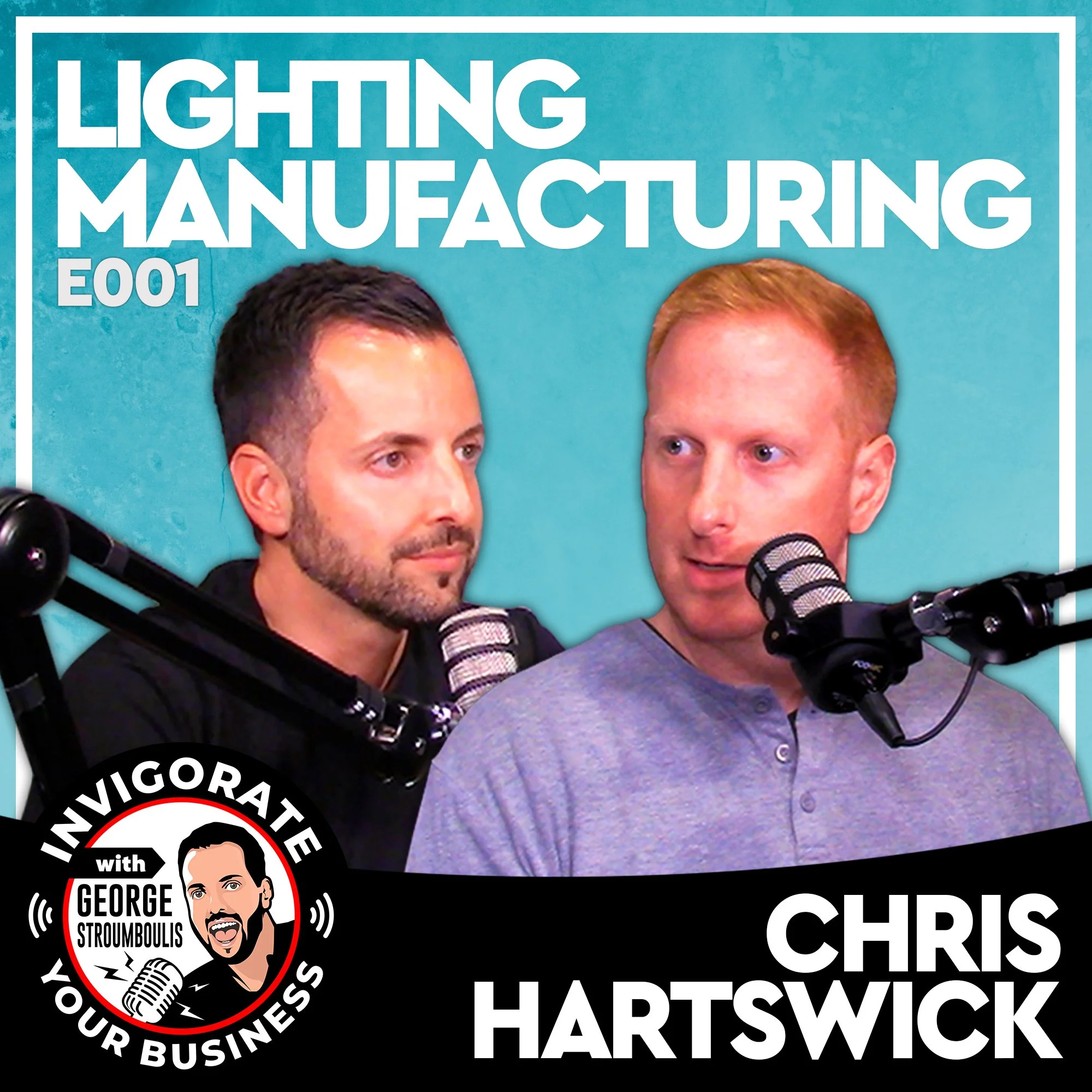
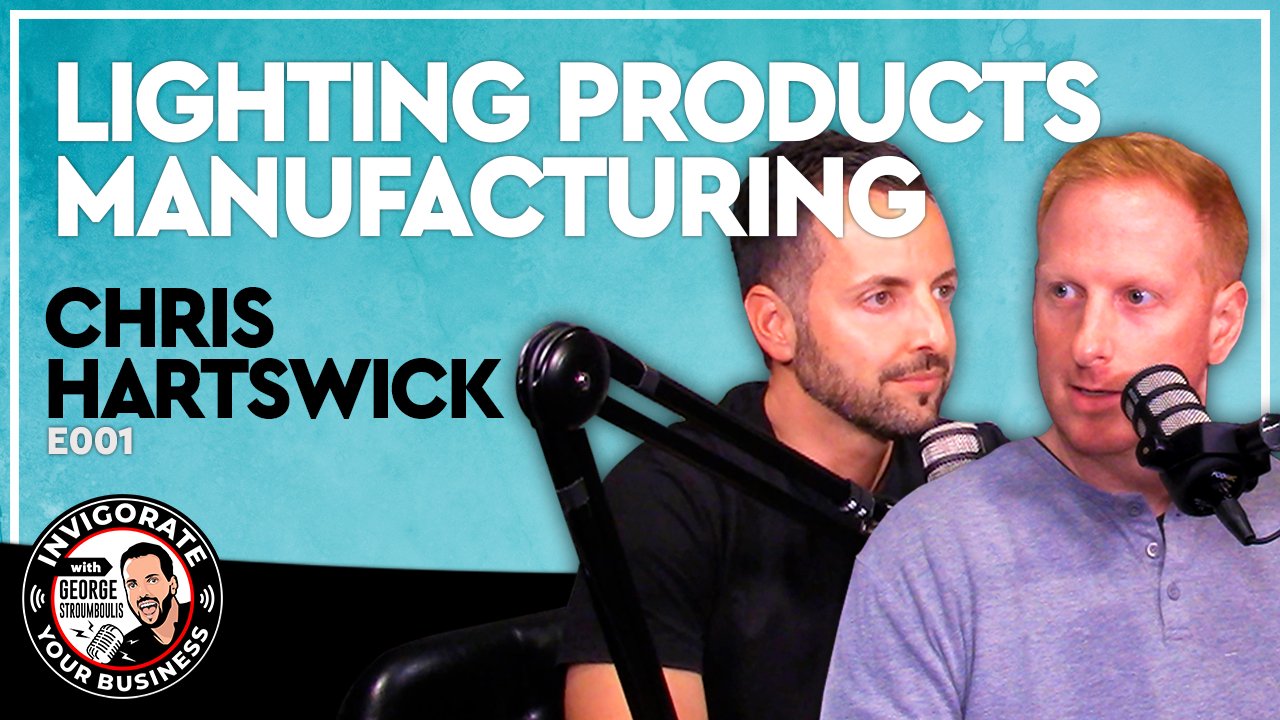
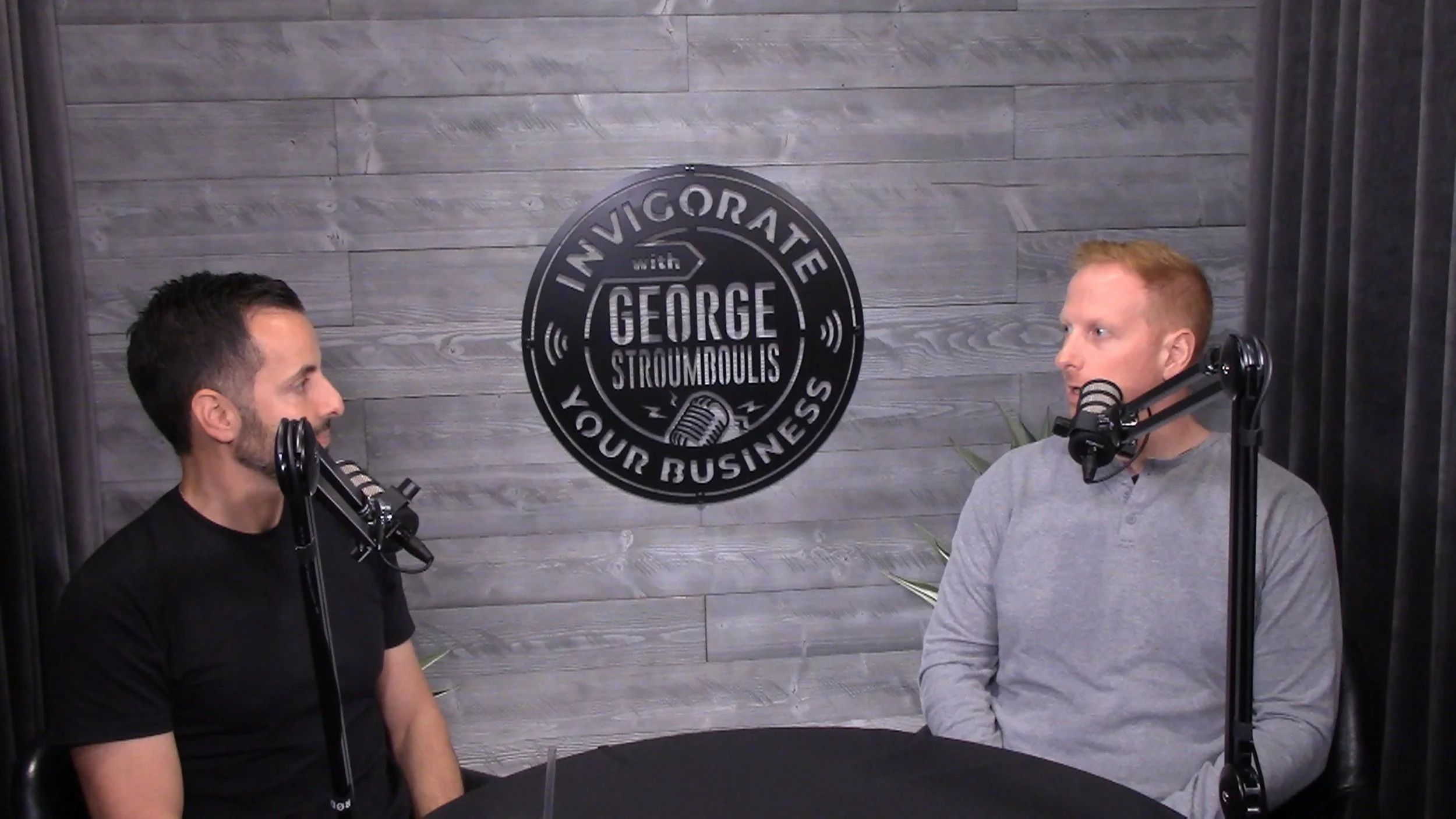

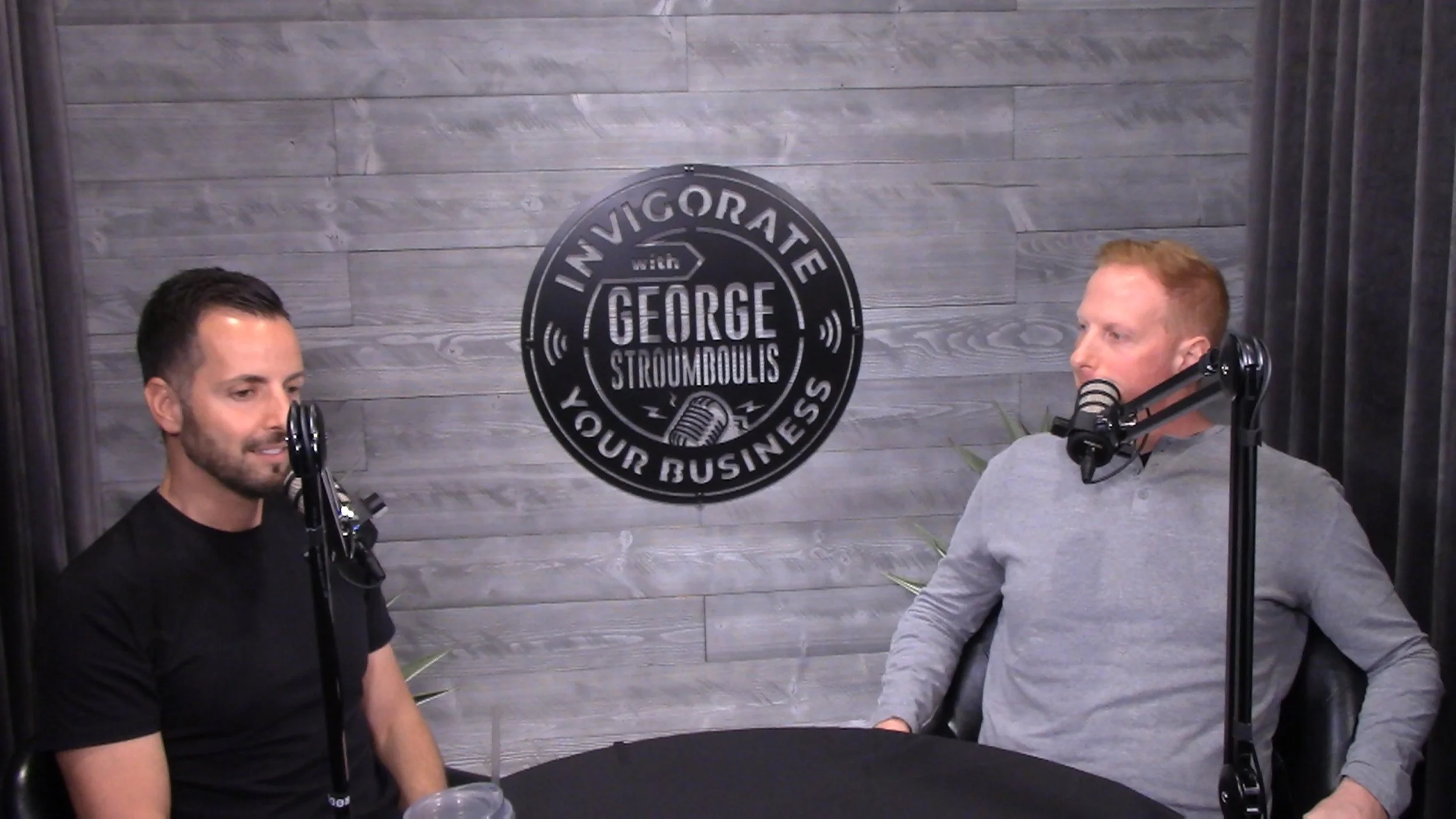
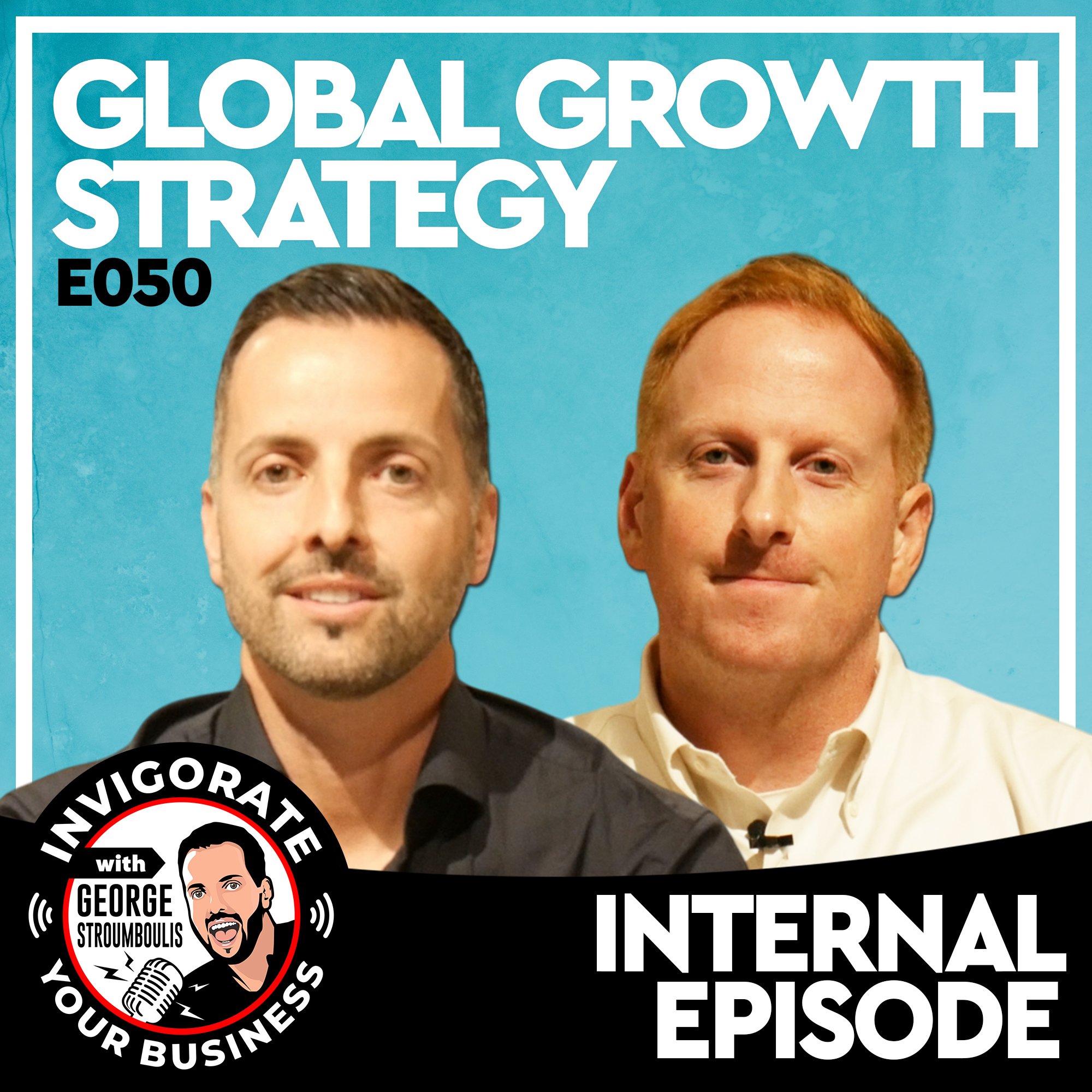

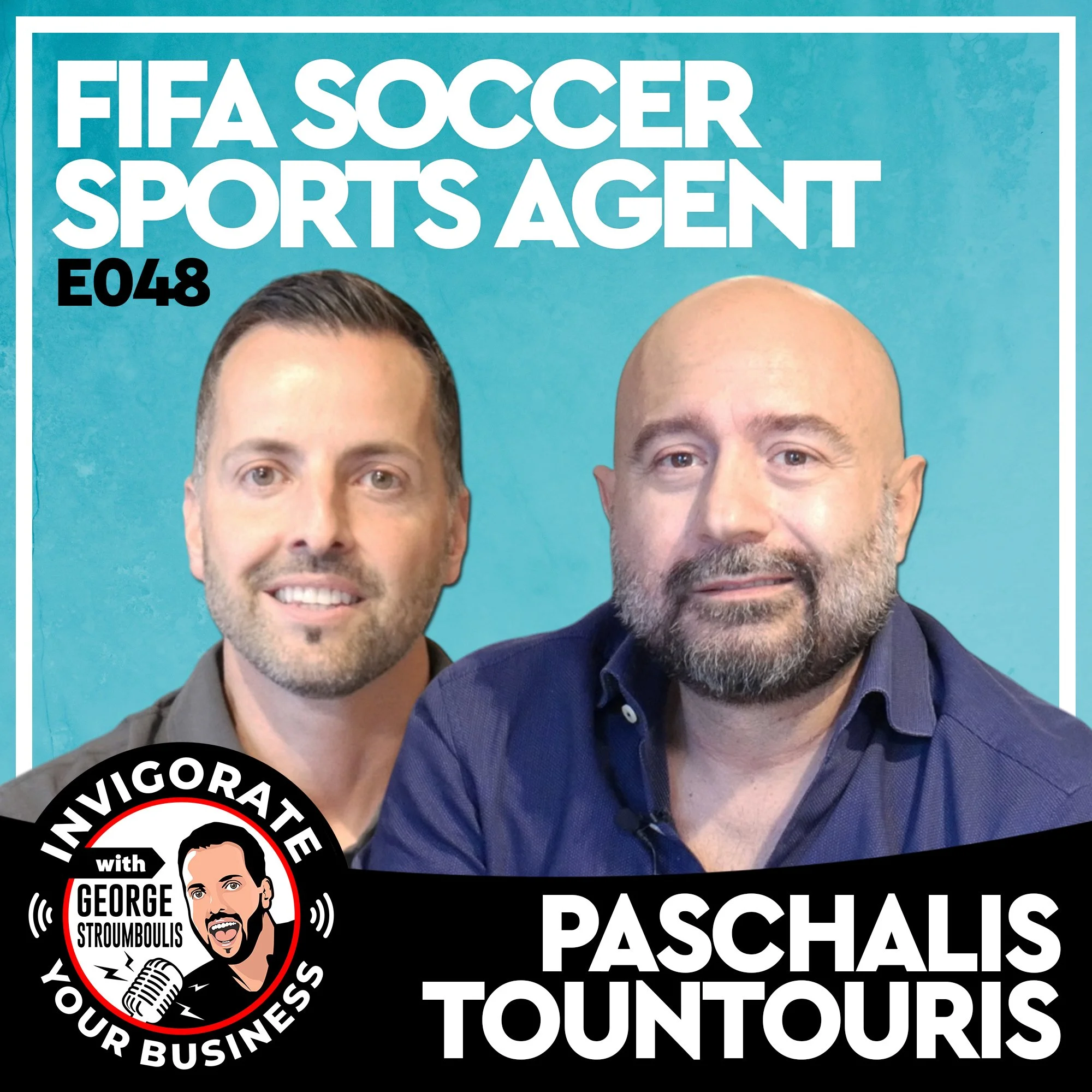
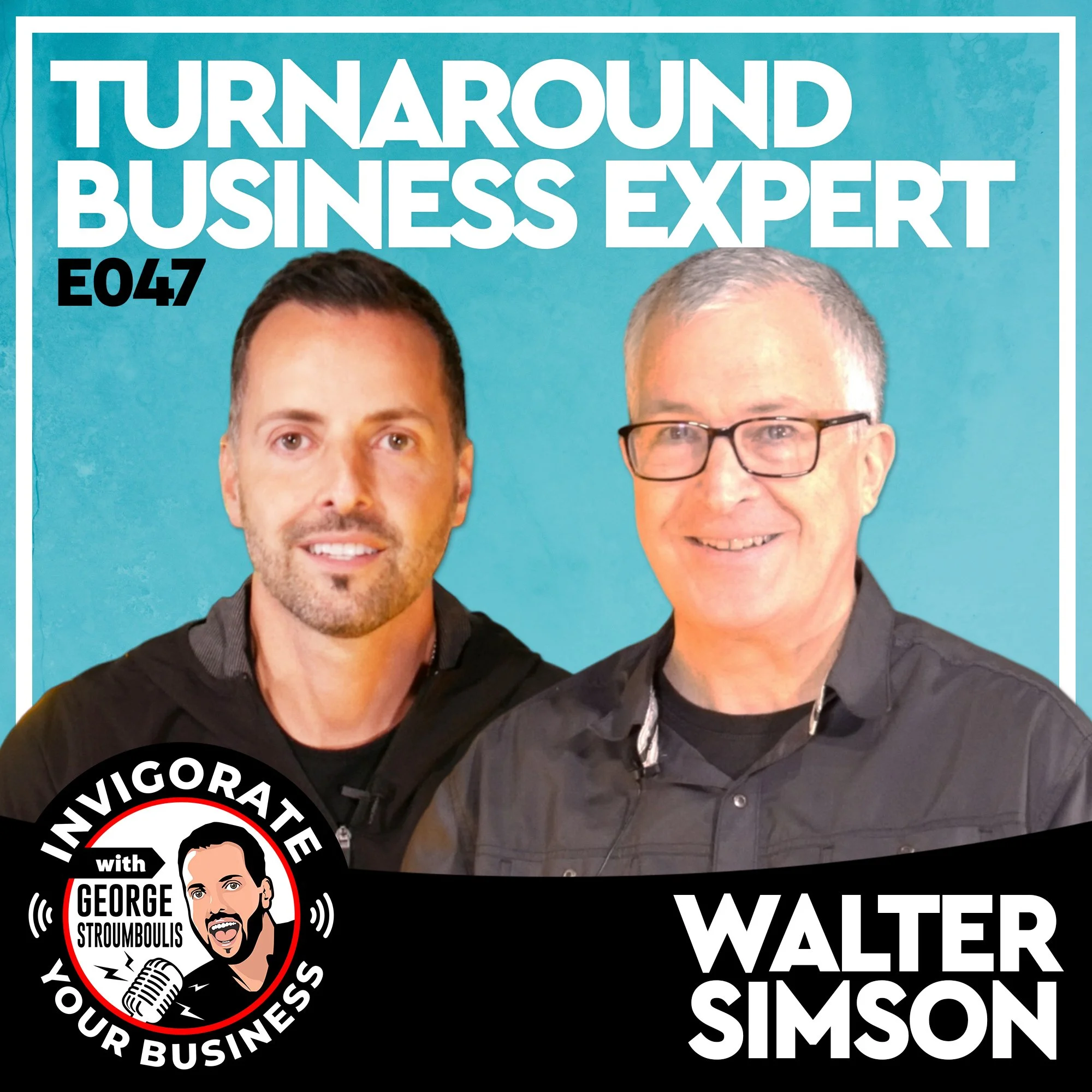
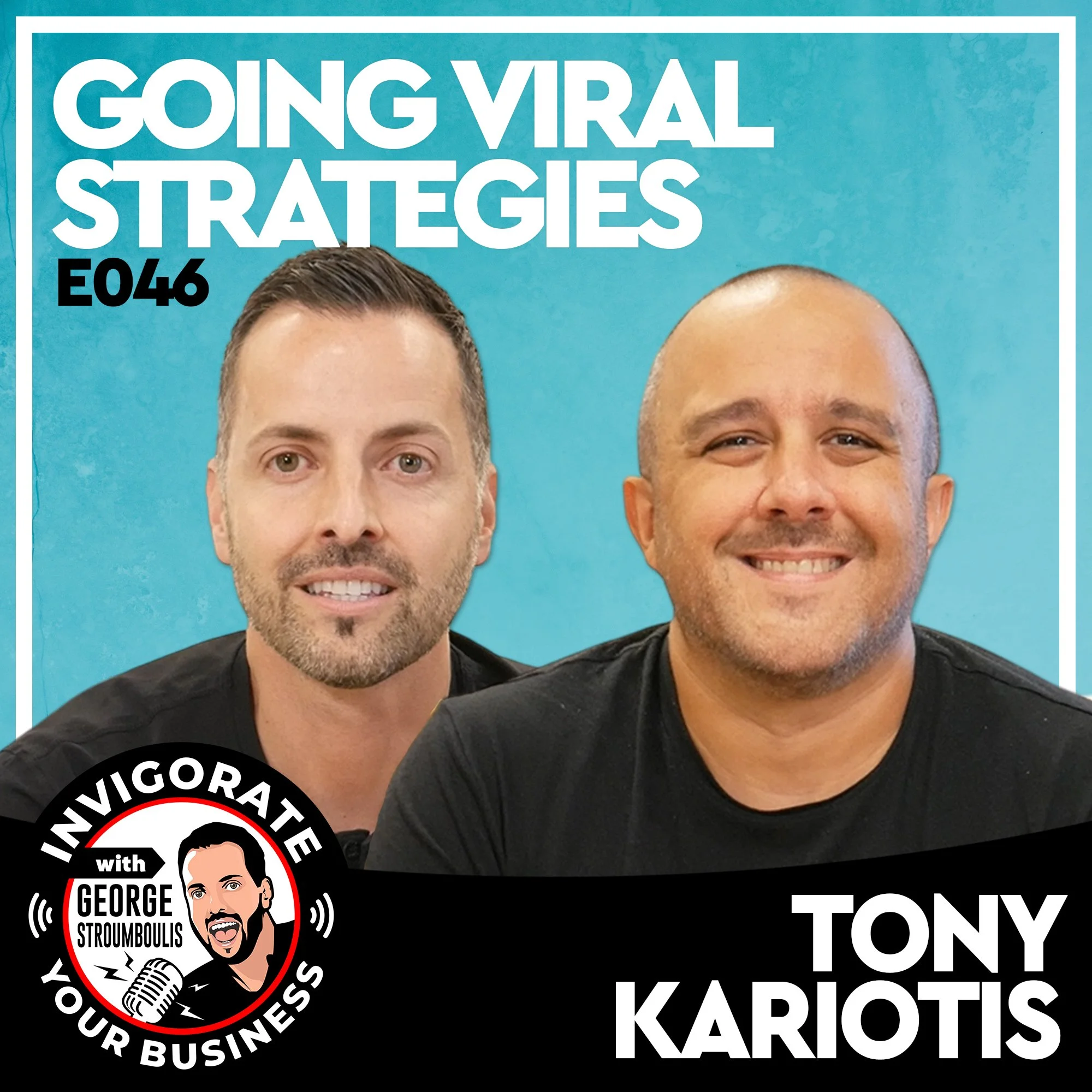

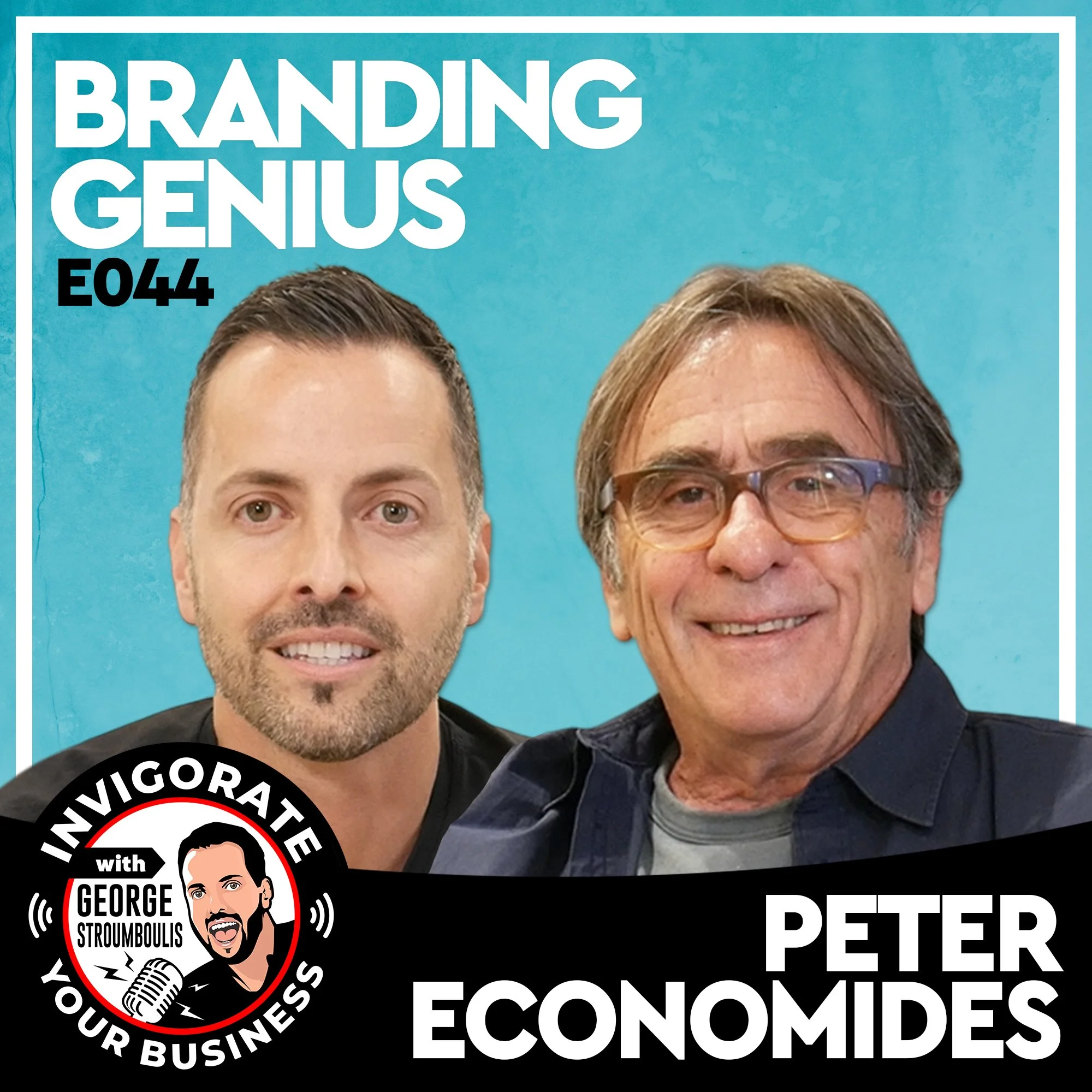
George Stroumboulis sits down with Jim Sogotis in Newport Beach, California on the Invigorate Your Business Podcast to talk about all things financial markets, investments, hedge funds, mutual funds, financial advice and so much more.